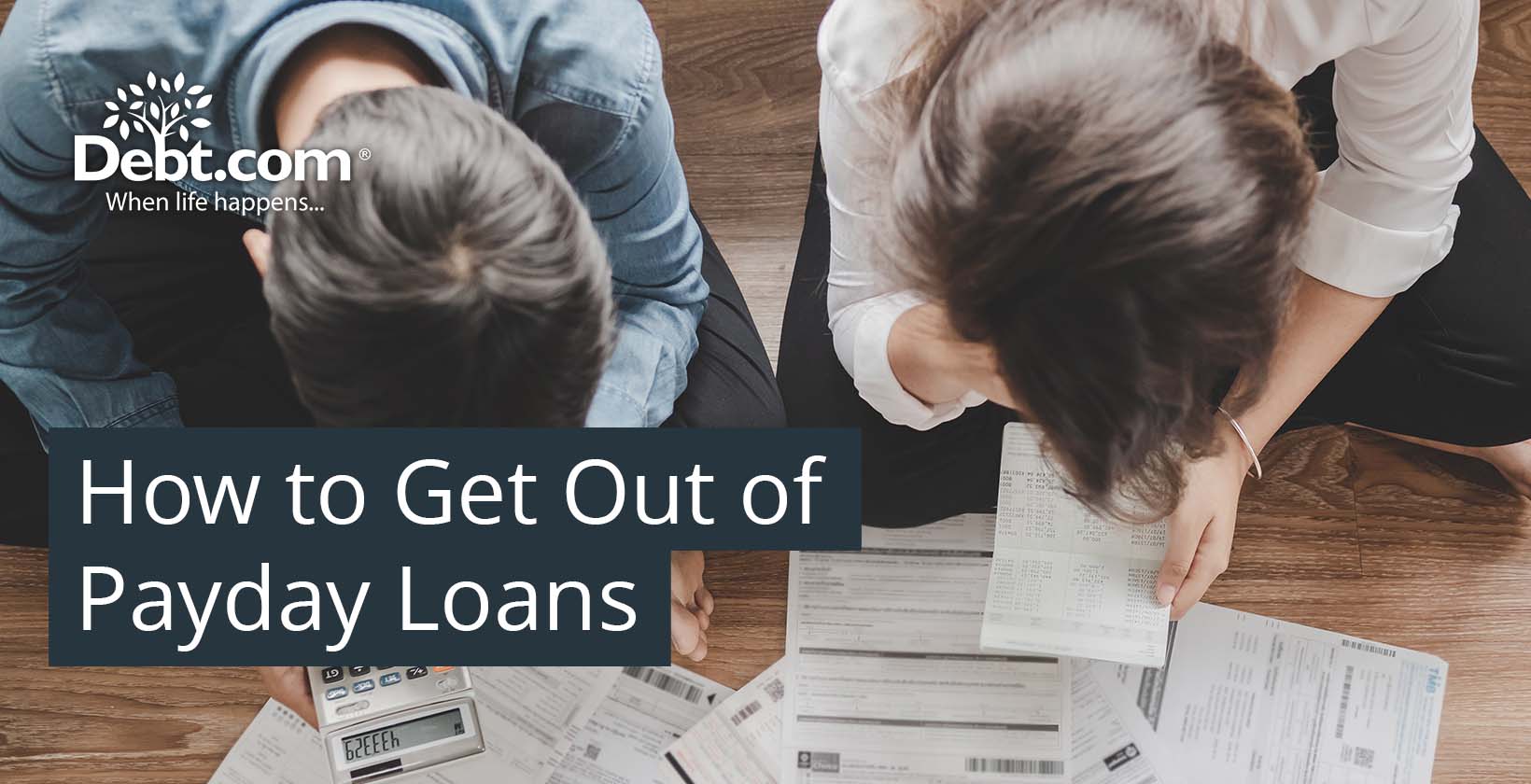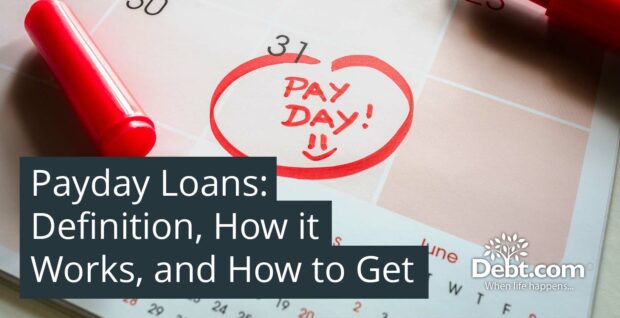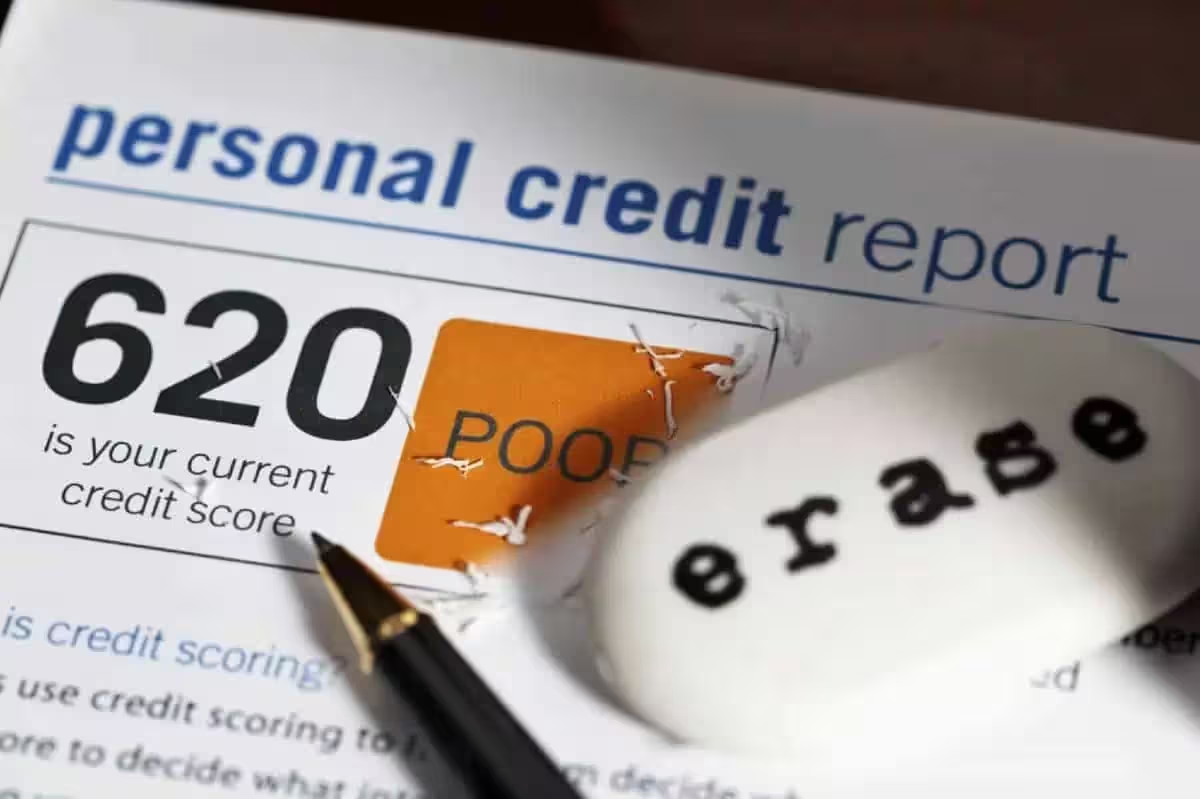
Getting out of payday loans is crucial for most borrowers due to the higher interest rates and the burden of falling into a debt cycle. A payday loan is a short-term, costly loan meant to give debtors quick access to money, usually to cover emergencies or necessary costs until their next paycheck.
Practical strategies for a payday loan nightmare include requesting an Extended Payment Plan (EPP) to repay the loan in manageable installments over time, which prevents costly rollovers. Opting for Payday Alternative Loans (PALs) issued by credit unions provides more reasonable terms and lower interest rates than payday loans. Consolidating payday loans into a single personal loan with a lower interest rate is an equally effective payday loan relief strategy, simplifying repayment and reducing overall interest costs. Peer-to-peer loans offer an alternative with potentially lower interest rates and more convenient repayment terms.
Borrowing from family or friends, with clear repayment terms, is an interest-free or low-interest option. Asking for help with payday loans benefits borrowers struggling to manage these loans. Enrolling in a Debt Management Plan (DMP) through a credit counseling agency consolidates multiple debts into a single payment with negotiated lower interest rates, making it easier to manage and pay off debt. Understanding payday loan risks and exploring these alternatives help borrowers escape the payday loan trap and achieve financial stability.
Table of Contents
1. Request an Extended Payment Plan (EPP)
Requesting an extended payment plan (EPP) is one way to pay off payday loans over time. Extended payment plans (EPP loans) offer a no-fee option that enables payday lenders to repay their loans in installments over a more extended period. The loan amount is divided into four or more equal installments. Repayments are biweekly or monthly, relying on state regulations rather than repaying the total payday loan in one lump sum on the next payday. The option helps prevent creditors from needing to commit to a costly payday loan rollover when they are unable to repay the loan in full from their next paycheck. EPP loans provide a more manageable repayment structure, reducing financial stress for debtors. An EPP is mandated in many states to ensure debtors have access to such an alternative.
2. Go for Payday Alternative Loans
Payday alternative loans (PALs) are facilitated by credit unions to serve as a more economical and manageable option than payday loans. These short-term loans are available in amounts up to $1,000 and do not entail a credit check. A payday loan is repaid with a payday loan or substituted for one. Payday alternative loans (PALs) have the highest interest rate of 28% APR and are repaid in equal monthly installments for up to six months. Membership in the credit union for at least 30 days and an account in good standing are required to be eligible for a PAL. Applicants must pay $20 sometimes.
The National Credit Union (NCUA) controls Payday Alternative Loans (PALs) to prevent reborrowing. These laws restrict borrowers to one PAL at a time and three in a six-month period. There is no way to roll over PALs, so debtors do not acquire more debt by extending the loan period. These methods keep PALs affordable and manageable for users.
3. Opt for Payday Loan Consolidation
Opting for payday loan consolidation eases the financial strain on most loan recipients. Payday loan consolidation entails rolling several payday loans into one new personal loan, repaid in monthly installments at a lowered interest rate. The process starts with applying for a personal loan from a credit union, online lender, or bank. The debtor uses the lump sum to settle current payday loans and then makes manageable monthly payments on the new loan once approved. A payday loan consolidation offers a longer repayment period and smaller fixed installments, making debt more straightforward to manage and less overwhelming. Personal loans, with APRs not exceeding 36%, are more affordable compared to payday loans, which have APRs around 400%. For instance, a $1,000 personal loan at 23% APR over three years results in monthly payments of $38.71, totaling about $394 in interest. A systematic repayment plan provides a more straightforward approach to getting out of debt.
4. Get Peer-To-Peer Loans
Getting Peer-to-peer (P2P) loans is an effective solution for getting out of payday loans due to its potential for lower interest rates and more manageable repayment terms. P2P lending platforms connect borrowers directly with individual lenders, bypassing established financial institutions. P2P lending websites pair borrowers with lenders. Each website determines fees, conditions, and transactions. Several sites present a variety of interest rates based on applicant creditworthiness.
Borrowers consolidate high-interest payday loans into a single P2P loan with lower interest rates, often between 6.40% and 36%, versus the exorbitant rates of payday loans, reaching around 400%. The repaid option has more extended repayment periods and lower monthly payments, reducing financial strain on debtors. Consider the likelihood of default, as Peer-to-peer loans generally have higher default rates than conventional loans.
5. Borrow from Family or Friends
Borrow from family and friends when paying off a payday loan. Consider seeking support from family or friends if assistance from an organization or financial institution is unavailable. Establishing clear and mutually agreed-upon loan terms makes asking loved ones for money easier. Writing down details such as repayment schedules, methods, and any applicable interest ensures that expectations are transparent and agreed upon by both parties.
Experiencing financial difficulties is a common challenge, and successfully overcoming such hurdles provides the opportunity to assist others in the future. The mutual support system is invaluable in times of need.
6. Consider a Debt Management Plan
Considering a Debt Management Plan (DMP) to get off of payday loans is a wise measure to attain financial stability. A DMP is a structured repayment program set up by credit counseling agencies to help creditors manage and pay off their debts more effectively. Debt Management Plans (DMPs) simplify repayment and simplify to monitor payments by consolidating several payday loans and other financial commitments into one monthly payment.
Credit counseling agencies frequently negotiate reduced interest rates and waive fees with creditors, decreasing debt. It helps payday loans, which have hefty interest rates. A DMP helps budget and manage finances with a predetermined monthly payment schedule. A DMP helps borrowers avoid aggressive collection efforts since the credit counseling service communicates with creditors. Financial education and budgeting assistance from these institutions help people understand their spending habits, build a budget, and prevent debt. Find licensed credit counseling agencies like the National Foundation for Credit Counseling to enroll.
How do Payday Loans Work?
Payday loans work by requiring borrowers to present proof of income, often in the form of pay stubs from their employer. A percentage of the borrower’s upcoming paycheck must be repaid within a short time frame, usually 30 days or less, once approved. Payday lenders must assess the borrower’s ability to repay the loan, so they charge very high interest rates and impose additional fees if payments are missed. The high-cost structure poses significant risks for borrowers, as it lead to a cycle of borrowing more money to cover the initial loan, resulting in mounting debt and financial instability.
Efforts to regulate payday lenders began in 2016 under the Obama administration and were implemented in 2017 when the Consumer Financial Protection Bureau (CFPB), led by Richard Cordray, established rules to protect consumers from “debt traps.” These rules mandated that lenders assess a borrower’s ability to repay loans while covering living expenses and required written notice before attempting to collect from a borrower’s bank account. Lenders are not permitted to make more than two unsuccessful debit attempts without the borrower’s consent. Stricter payday loan regulations were enforced starting June 13, 2022 under the Biden administration. However, the CFPB under the Trump administration attempted to revoke these provisions in 2019, delaying their implementation and ultimately removing the mandatory underwriting requirement while maintaining restrictions on repeated debit attempts.
What are the Risks in Payday Loans?
The risks of payday loans are listed below.
- High interest rates: These types of loans often incur very high fees, typically 20% of the amount borrowed plus an additional 4% per month, resulting in very high annual interest rates. Payday lenders are not legally required to disclose the annualized interest rate. There are numerous fees detailed only in the fine print. For instance, some payday lenders levy $7 daily for late payments. Payday loans are significantly more expensive than personal loans from mainstream banks, which usually have an annual interest rate ranging between 8% and 15%.
- Recurring debt cycle: The cycle of debt that payday loan users create is another issue that impacts them. There are payday loan lenders who assist in preventing customers’ debt from escalating and becoming an issue. However, it is pretty simple for individuals to become stuck in a cycle they find hard to break. Creditors with no other recourse often take out a new payday loan to cover the shortage of money they experienced in the previous month, although most payday loans are intended for a smaller quantity of money. The deficit is further exacerbated by the high interest rates involved with the loan when incorporated into the debt equation.
- Basic or no credit checks: Some payday loan providers do not perform thorough credit checks on their applicants and even accept people with poor credit for their credit checks on their applicants and even invite individuals with poor credit to use their services, regardless of their financial stability. Acceptance for a payday loan often occurs rapidly, with funds deposited into a current account within minutes. The expedited process is due to the minimal information most payday loan lenders require. Consequently, individuals struggling financially find it more tempting to rely on payday lenders to manage their monthly expenses.
- They negatively affect a borrower’s credit: Considering a mortgage, credit card, finance agreement, or mobile phone contract in the next few years is negatively affected by borrowing from a payday lender. The borrowing behavior adversely impacts a credit record, diminishing the ability to obtain credit from more credible loan agencies like banks or building societies. Some mortgage providers even refuse to lend to individuals with a history of using payday loans, regardless of their payment history, viewing it as an indication of poor budgeting and financial management, rendering them too high a risk to lend to.
- Bank account information access: Lenders assess affordability before lending by accessing an applicant’s online banking account to check transactions. The process is done either through an algorithm that analyzes transaction history via a third-party app or Open Banking, which is a safer method as it is governed by the FCA. Some lenders instantly collect interest payments once the borrower has been paid by monitoring the money in and out of the account. The automatic collection impacts other financial areas if sufficient funds are not available.
Why is it Hard to Pay Off a Payday Loan?
It is hard to pay off a payday loan due to several factors that trap borrowers in a cycle of debt. Firstly, these loans come with balloon payments, meaning the entire balance plus fees is due in one lump sum at the end of the loan period. The lack of an installment plan leaves little room for error if unexpected expenses arise. Payday loans typically have a very brief payback period, often around two weeks, which increases the likelihood of defaulting or rolling over the loan. Rolling over a loan entails paying an additional fee to extend the loan period, leading to exponentially higher costs over time.
The annual percentage rate (APR) for payday loans is exorbitantly high, averaging around 398%. For instance, borrowing $400 with a $50 fee results in owing $450 within 14 days. The borrower pays the $50 fee but still owes the original $400 if rolled over, plus another $50 fee two weeks later, doubling the cost without reducing the principal. The cycle quickly escalate, with borrowers paying hundreds in fees without making a dent in the principal amount owed.
The combination of balloon payments, short repayment periods, and high APRs makes it easy to see why borrowers struggle to repay payday loans. These conditions create a financial burden that lead to default, further damaging credit scores and increasing financial instability. Alternatives such as borrowing from friends or family, or taking out installment loans with more manageable terms, are recommended over payday loans. Installment loans offer lower interest rates and the ability to repay over several months or years, reducing the financial pressure on borrowers and providing a more sustainable path to financial stability.
Is Falling into the Payday Loan Trap Common?
Yes, falling into the payday loan trap is common. Falling into the payday loan trap is a common issue for many borrowers due to the structure and high costs associated with these loans. Payday loans are short-term, high-interest loans intended to provide quick cash for emergency expenses, typically requiring repayment by the borrower’s next paycheck. These loans often come with exorbitant interest rates despite the seemingly convenient solution, averaging around 400% APR, and go as high as 780%. The high fees and short repayment terms make it challenging for borrowers to repay the loan on time.
Borrowers frequently opt to roll over the loan when they are unable to repay their payday loan by the due date, incurring additional fees and interest. The Consumer Financial Protection Bureau (CFPB) reports that 80% of payday loan borrowers either roll over or renew their loans within two weeks, leading to a cycle of debt that is difficult to escape. The rollover process significantly increases the overall cost of the loan, often resulting in borrowers paying back far more than the original loan amount.
Payday lenders often do not conduct thorough checks on borrowers’ ability to repay, further exacerbating the debt cycle. The lack of a comprehensive credit check and the reliance on postdated checks or electronic access to bank accounts lead to multiple withdrawals, overdraft fees, and increased financial strain. The predatory lending practice targets debtors urgently needing cash, often leading to long-term financial difficulties.
Regulatory efforts have been made to curb these practices, with 16 states and the District of Columbia outlawing payday loans entirely due to their predatory nature. These regulations protect consumers from the debt trap associated with payday loans. Borrowers must be cautious and explore alternative emergency loan options with more favorable terms in states where payday loans are still legal.
Payday loans in the U.S. present significant financial challenges for many borrowers, especially in states with fewer consumer protections, where these loans cost up to four times more. The average payday loan term is approximately two weeks; troublingly, one in five borrowers typically default on their loan. The situation is even worse for creditors who obtain installment loans from online lenders, with more than half of these borrowers defaulting on their balance. Eighty percent of tracked borrowers rolled over or reborrowed payday loans within 30 days over 10 months. Around 12 million Americans take out a payday loan each year, according to the most recent data from the Consumer Financial Protection Bureau (CFPB). Payday loan lenders operate physical stores in 32 states as of 2022.
Why is it Important to Get Out of Payday Loans?
It is important to get out of payday loans because these loans quickly become a financial trap due to their high costs and predatory nature. Payday loans, often marketed as quick and easy solutions for immediate cash needs, come with exorbitant fees and interest rates that reach up to 780% APR. It makes them significantly more expensive than traditional loans or credit cards. Borrowers who fail to repay the loan by the due date often face rollovers, where the loan is extended for another period with additional fees, further increasing the debt. The cycle of debt is challenging to escape, as each rollover adds more fees, leading to a situation where the borrower owes far more than the original loan amount.
The impact of payday loans extends beyond financial strain. They severely damage a borrower’s credit score if payments are missed, leading to collections and legal action. Payday lenders often employ aggressive collection tactics, including repeated withdrawal attempts from the borrower’s bank account, which result in multiple overdraft fees and additional financial hardships. Payday loans do not typically help build credit as they are only reported to credit bureaus if they go into collections, further limiting the borrower’s ability to access better financial products in the future.
Payday loans disproportionately affect vulnerable populations, including low-income individuals and military personnel. These loans are often marketed in impoverished and minority neighborhoods, preying on borrowers with limited access to traditional credit. The high cost and aggressive repayment terms tend to push borrowers into a cycle of debt, making it crucial to seek alternatives such as borrowing from friends or family, using installment loans with more reasonable terms, or exploring community resources and financial assistance programs.
Given these significant drawbacks, borrowers must avoid payday loans and seek safer financial alternatives. Escaping payday loan debt alleviates immediate financial burdens and helps improve long-term financial health, creditworthiness, and access to more favorable borrowing options. An effective payday loan relief enhances financial stability.
What are the Tips in Paying Off a Payday Loan?
The tips in paying off a payday loan are listed below.
- Make full payment: Lenders generally prefer customers to pay off payday loans in full. Making all loan installments as scheduled is the most effective approach to repaying these loans, provided a well-planned budget and sufficient funds cover the payments. The strategy helps avoid additional debt by ensuring timely payments. Some states enforce regulations that prevent individuals from obtaining a new payday loan until the previous one is fully paid off. Once all payments are completed, attention shift to addressing other financial concerns, promoting overall financial stability and health.
- Examine Budget: Changing spending patterns is a crucial step toward eliminating payday loan debt. Creating a budget, if one is not already in place, helps to track and manage expenses. Reducing unnecessary expenditures, such as daily purchases from coffee shops, frees up more funds to repay loans. The approach accelerates the debt repayment process and promotes financial stability.
- Refrain from obtaining additional payday loans: The temptation to obtain additional payday loans to alleviate debt is possibly understandable. Doing so keeps a borrower in a cycle of poverty that is hard to escape. The initial step toward achieving a debt-free existence is to avoid obtaining another payday loan, which is essential for breaking the pattern.
- Prevent from rolling over the loan: Rollovers quickly entrap borrowers in payday loan debt because each renewal incurs a new service fee, significantly increasing the interest rate. Avoiding them is advisable as they ultimately lead to greater payday loan debt while a few rollovers provide additional time to repay the loan in full.
- Get a personal loan: Repaying payday loans sometimes feel impossible. In such situations, a personal loan provide assistance. The funds from a personal loan is used to make payments to payday lenders. Personal loans typically offer a significantly lower interest rate and more flexible repayment options compared to credit cards. Managing one monthly payment is easier than handling multiple payments to various payday lenders.
- Consolidate payday loans: Consolidating payday loans involves combining several loans into a single loan. The process typically includes taking out a new loan to repay all existing payday loans, resulting in only one loan to manage. It is crucial to ensure the new loan has a lower interest rate. Additionally, timely payments on the new loan are essential to avoid accumulating further debts.
- Join a program for consolidation: Dealing with the high-interest rates of payday loans is overwhelming, often leading to the need for additional loans. Debts become unmanageable, especially when multiple creditors are involved. Missing a single payment exacerbate the situation, causing significant stress. In such cases, a payday loan consolidation program offer relief. Consolidating loans reduces the number of creditors to one, resulting in a single monthly payment. The approach simplifies the repayment process and helps to lower monthly payments, enabling faster debt resolution.
- Ask for a payment plan: A lender sometimes consent to allowing payments of only the interest on the loans, extending the term in the process. They place the account on hold and collaborate on a revised payment plan.
- Research payday lending laws: Gather information on a state’s payday lending legislation and regulatory agencies. State legislation protect creditors from loan sharks. Negotiate with the lender to cancel the payday loan once debtors understand the state’s rules. Avoid imposters who prey on creditors seeking quick cash. Adjust spending patterns to meet pressing expenses. Create an emergency fund to avoid payday loans. Repeating mistakes hurt finances. Getting a payday loan to satisfy their financial needs and then getting another to pay it off first, they get caught in the payday loan trap. Payday consolidation is advantageous if a debtor wants to get out of such a situation soon.
What Happens if You Default on a Payday Loan?
If you default on a payday loan, it has severe financial and legal consequences. The lender uses the access provided to the borrower’s bank account to withdraw funds directly, potentially causing overdraft fees and further financial strain when a borrower defaults. Aggressive collection tactics often follow, including relentless calls to borrowers and their contacts. Lenders prefer defaults as they accrue higher fees and interest charges, according to the National Consumer Law Center. Debt collectors, governed by the Fair Debt Collection Practices Act, are only allowed to contact the borrower and select individuals, such as a spouse or guardian, to recover the debt.
Failure to repay the loan on time significantly impacts the borrower’s credit score, making it harder to obtain future financing. Lenders have the right to sue borrowers, leading to court appearances where a default judgment results in wage garnishment, bank account levies, or property liens. Defaulting on a payday loan tarnishes the borrower’s credit report for up to seven years, deterring potential lenders.
Defaulting on a payday loan is not a criminal offense despite the serious repercussions, and nonpayment is not punishable by jail time. However, some lenders exploit legal loopholes to intimidate borrowers with threats of arrest. Borrowers must know their rights and seek advice from credit counseling services to manage their finances post-default and rebuild their credit scores. Ignoring the debt spiral into more aggressive collection actions, additional fees, and persistent financial difficulties making it essential to address payday loan debts promptly and strategically.
Is Seeking Professional Help a Good Idea to Get Out of Payday Loans?
Yes, seeking professional help is a good idea to get out of payday loans. Seeking professional help to get out of payday loans is a highly effective strategy. Financial advisors offer expertise in debt management, helping individuals prioritize their debts and create a comprehensive plan to pay them off. Advisors often employ strategies like the “debt snowball” or “debt avalanche” methods to tackle high-interest debts, which is crucial for managing payday loans that typically have exorbitant interest rates. These professionals assist in restructuring or consolidating debts, potentially lowering overall interest rates and making monthly payments more manageable. For example, a home equity loan to pay off payday loans significantly reduce the interest burden.
Financial advisors with credentials like certified financial planners (CFP) or chartered financial consultants (ChFC), must act in the client’s best interest as fiduciaries. They must provide unbiased advice to improve the client’s financial health. They help create a budget that includes paying off high-interest debts while meeting necessary expenses. The process often involves critically reviewing spending habits and adjusting to free up funds for debt repayment.
Advisors guide clients in building an emergency fund, thus reducing the reliance on high-cost payday loans for future financial needs. They offer advice on long-term financial planning, such as retirement savings and life insurance, ensuring that clients achieve overall financial stability.
Organizations like the National Foundation for Credit Counseling (NFCC) and the Financial Counseling Association of America (FCAA) offer free or low-cost credit counseling for borrowers who do not afford professional financial advisory services. These services provide similar benefits, helping individuals effectively manage and reduce their debt.
What to Do After Getting Out of Payday Loans?
After getting out of payday loans, taking strategic steps to regain financial stability and protect assets is crucial. First, create a realistic budget that accounts for all the expenses and prioritizes savings to build an emergency fund. The fund serves as a buffer against future financial emergencies, reducing the likelihood of needing high-cost loans again. Improve the credit score by paying bills on time and reducing any remaining debt. Seek assistance from credit counseling agencies to develop a debt management plan and gain access to resources that help a debtor rebuild the credit and manage finances effectively.
Knowing and exercising a borrower’s rights when dealing with debt collectors is important. The Fair Debt Collection Practices Act (FDCPA) protects consumers from abusive collection practices, so familiarize onesself with these protections and use them to handle any lingering issues with previous payday loan creditors. Consider sending cease-and-desist letters or seeking legal advice to stop unlawful practices if harassed by debt collectors.
To avoid falling into the payday loan trap again, explore alternative borrowing options such as personal loans from credit unions or banks, which often have lower interest rates and more favorable terms. Consider building a relationship with a financial institution that offer better financial products and advice tailored to a debtor’s situation.
Lastly, learn about financial management through online courses, workshops, or books. Understanding how to manage money, create a budget, and invest wisely helps ensure long-term financial health. Taking these steps allows debtors to recover from payday loans and build a strong financial foundation for the future.
What are the Best Strategies for Long-Term Financial Planning?
The best strategies for long-term financial planning are listed below.
- Establish a clear financial plan: Establish financial objectives for the short, medium, and long term. The plan encompasses acquiring a residence, providing financial support for children’s education, or preparing for retirement. Establish specific, measurable, achievable, pertinent, and time-bound (SMART goals).
- Set a budget: Monitor income and expenditures to comprehend spending habits. Allocate funds for discretionary expenditure, investments, savings, and essential expenses. Regularly modify the budget to account for fluctuations in income or expenditures.
- Build an emergency fund: Maintain a readily accessible savings account with at least 3-6 months’ living expenses. The fund is a buffer against unforeseen expenses like job loss or medical emergencies.
- Manage debt wisely: Make it a priority to pay off high-interest debt, such as credit card balances. Contemplate consolidating or refinancing loans to reduce monthly payments and interest rates. Strive to preserve a favorable credit score and refrain from incurring unnecessary debt.
- Safeguard assets: Acquire sufficient insurance coverage (auto, property, life, disability, health) to safeguard against substantial financial losses.
- Consistently evaluate the insurance policies to ensure they align with the current requirements.
- Invest for the future: Investments must be diversified across various asset classes, including equities, bonds, and real estate, to mitigate risk. Consider tax-advantaged accounts, such as 401(k)s and IRAs, when saving for retirement. Regularly evaluate and rebalance the investment portfolio to ensure it is consistent with the objectives and risk tolerance.
- Non-stop learning: Be informed about the latest financial trends, investment opportunities, and tax law modifications. Participate in financial planning seminars, read books, and subscribe to credible financial news sources.
- Consistent financial assessments: Review financial plans regularly and make necessary adjustments in response to life circumstances (e.g., marriage, children, career changes). Consult with financial advisors or planners to ensure borrowers are on course to achieve their financial objectives.











